school
Latest
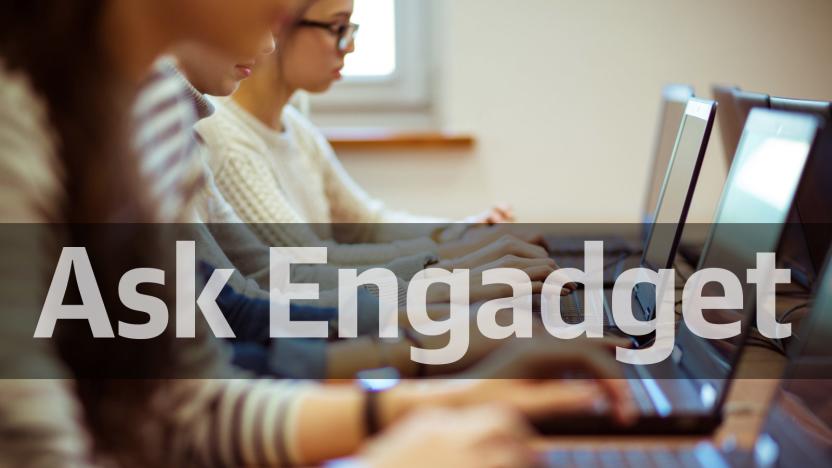
Students, send us your gadget questions!
How much laptop does a college freshman need? What's the quickest way to learn Photoshop? Is it worth having a TV in my dorm room? Ask Engadget gets a lot of emails -- and more than a few of them are questions about products. Think: What should I buy? Which product will work best for me? Which ones will last the longest? Now we're looking to hear from students, parents of students and maybe even some teachers too. If you're at all unsure about what to buy or how much to spend, shoot us a note and we'll answer as many of your queries as possible sometime this summer, once back-to-school shopping season is under way. Send your questions to ask@engadget.com and get a mix of answers from our staff and the rest of the Engadget community. (And if you have a non-school-related question, feel free to send that in too! We'll still be doing a monthly column leading up to, and after, our back-to-school special.)
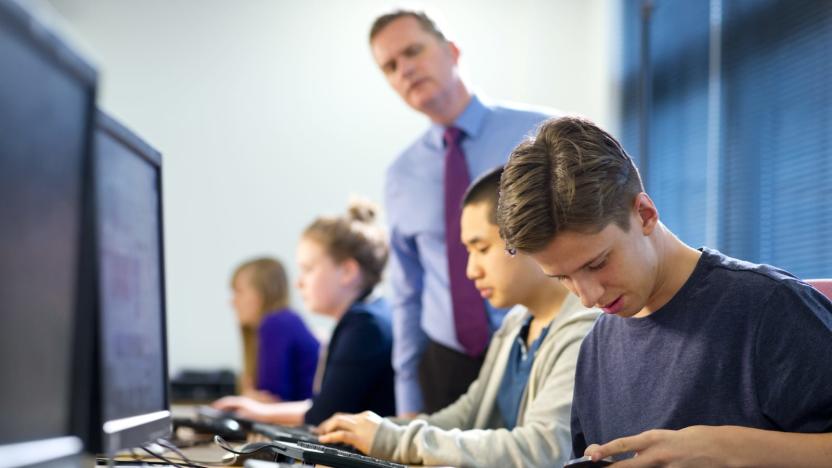
YouTube pulls hundreds of videos over essay cheating ads
YouTube doesn't have it easy managing the ads it automatically inserts itself, but it's another challenge entirely to manage the ads baked into the videos themselves. The online video giant has pulled over 1,400 videos after a BBC investigation found more than 250 channels had mid-video ads for EduBirdie, a Ukraine-based essay cheating service. YouTube had given some of these channels until May 4th to edit the ads out of their videos, but not all of them made it before the cutoff point.

Apple trains Chicago teachers to put coding in more classrooms
Apple isn't quite done announcing educational plans in Chicago. It just unveiled a partnership with Northwestern University and public schools to help teachers bring programming and other forms of computer science into Chicago-area classrooms. The trio will set up a learning hub at Lane Tech College Prep High School (conveniently, the venue for Apple's iPad event) that will introduce high school teachers to Apple's Everyone Can Code curriculum. They'll also have the option to train in an App Development with Swift course to boost the number of high school-oriented computer science teachers.
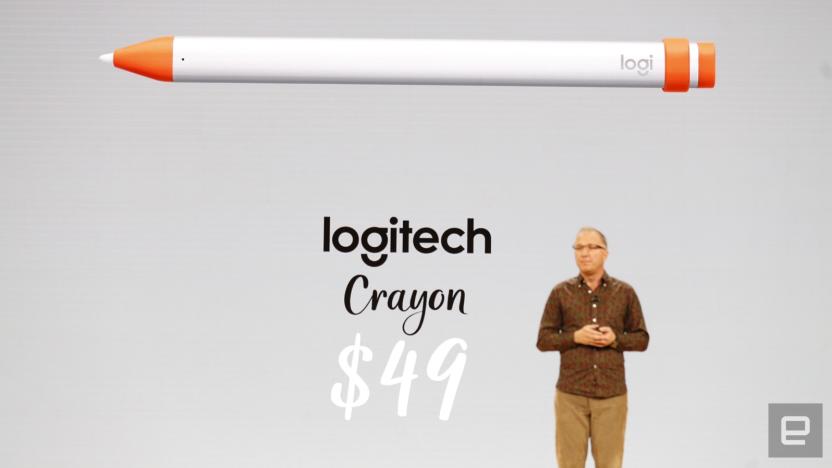
Logitech built a $49 digital crayon for the new iPad
Apple's new starter iPad is designed to make drawing more accessible, but the $89-plus it takes to buy the official Pencil for that iPad is a lot to swallow for cash-strapped educators. That's where Logitech might help: it's introducing a $49 Crayon accessory for the new iPad that should put art and handwriting within the reach of more schools. It promises low lag, tilt support and sub-pixel precision with an 8-hour battery life, and won't need pairing to get started. The most glaring omission is the lack of pressure sensitivity -- this isn't for pros. Still, it's evident that Apple is comfortable allowing Pencil alternatives if it means getting more iPads into classrooms.
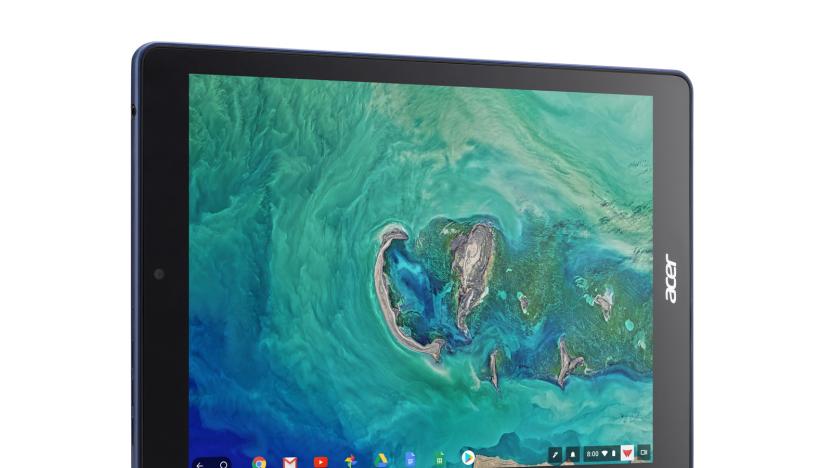
The first Chrome OS tablet comes from Acer
There have been many Chrome OS devices with touchscreens, but there haven't been pure tablets. You've always had an attached keyboard as a fallback -- until today, that is. Acer has unveiled the first Chrome OS tablet, the Chromebook Tab 10, and there's nary a keyboard to be found. The 9.7-inch slate is aimed at squarely at education, where the all-touch input and light weight (1.21 pounds) could make it a better fit for younger students. Appropriately, there's a bundled battery-free Wacom stylus that lets kids draw and take notes.

Tencent lets parents reward kids' good grades with game time
If you grew up with video games as a kid, you probably struck a deal with your parents: pass a school test with flying colors and you can play more. Tencent wants to formalize those arrangements. Chief executive Ma Huateng has proposed digital contracts that offer game time to kids (for Tencent games, of course) in return for either reaching certain academic criteria or performing chores around the home. He wasn't specific about when these agreements would be available, but he noted that children could have their friends witness the signing of a contract.

Tesla Powerwall systems help some Hawaii schools beat the heat
Tesla shipped Powerwall batteries to Puerto Rico last fall -- and to Australia last December -- and now it's helping Hawaii. Again. Specifically, it supplied equipment to the island state to help schools combat Hawaii's tropical temperature and relative humidity. Roadshow reports that Tesla shipped some 300 batteries and solar panels to the island as a way of keeping schools cool using renewable energy. This was after state government challenged the local department of education to cool an additional 1,000 classrooms without bumping electricity usage.
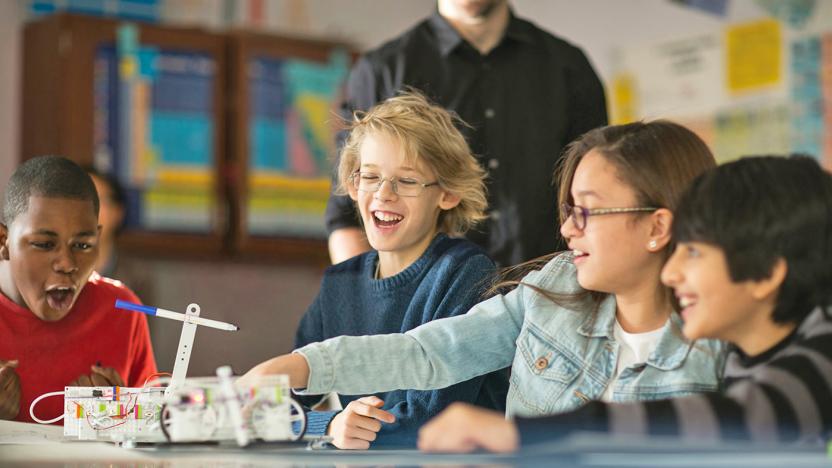
littleBits and Pearson bring electronics kits to US schools
The littleBits team has long been eager to teach kids about the joys of building electronics, and it's taking that commitment to its logical conclusion. It's partnering with Pearson on the STEM Invention Toolbox, a kit that teaches students at varying grade levels how to design electronics and understand scientific concepts. They can craft circuits that save energy, for example, or a communication device for astronauts. The aim is to learn by doing, and encourage kids to "think beyond the text" -- they're not just memorizing facts or performing canned experiments.
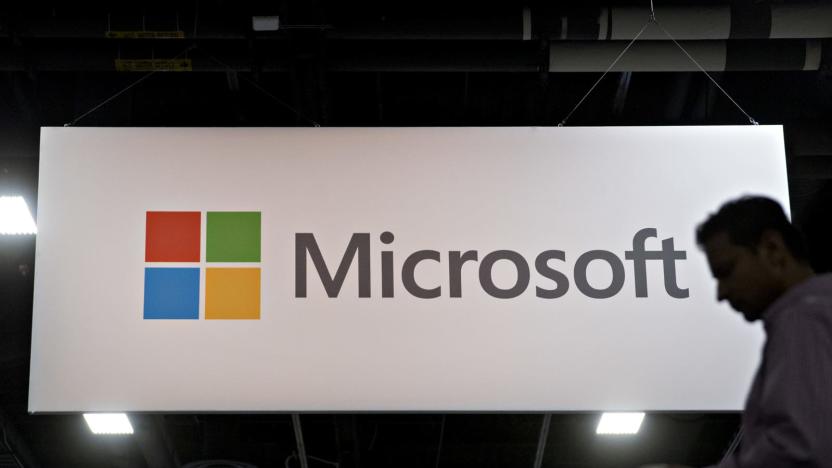
Microsoft's all-in-one 365 subscription is available for schools
Microsoft just launched its latest bid to bring its services into every aspect of schools and the workforce. To begin with, it's offering its all-encompassing Microsoft 365 subscription to education. Schools can pay a single per-person rate to get Windows 10, Office 365, the Enterprise Mobility and Security Suite and even Minecraft: Education Edition. Office 365 for Education is already free, but Microsoft is betting that all the other perks will be worth it for faculty that wants a one-stop shop for the software they need. It'll be available on October 1st -- too late for the return to school, so don't be surprised if you don't see this used in earnest until the winter semester or next fall.

Google Tango shows how AR can improve virtual field trips
Google didn't have a ton of new things to say about its Tango augmented reality tech during today's I/O developer keynote. Instead, the company wanted to flaunt what Tango is already good at -- namely, the type of educational Expedition experiences that were briefly shown off yesterday. Daydream's education lead Jennifer Holland said that over two million students and teachers have taken advantage of what Tango can offer in a school setting. "One of the most important things my team has learned is you need to embrace they key functions of a classroom," she said.
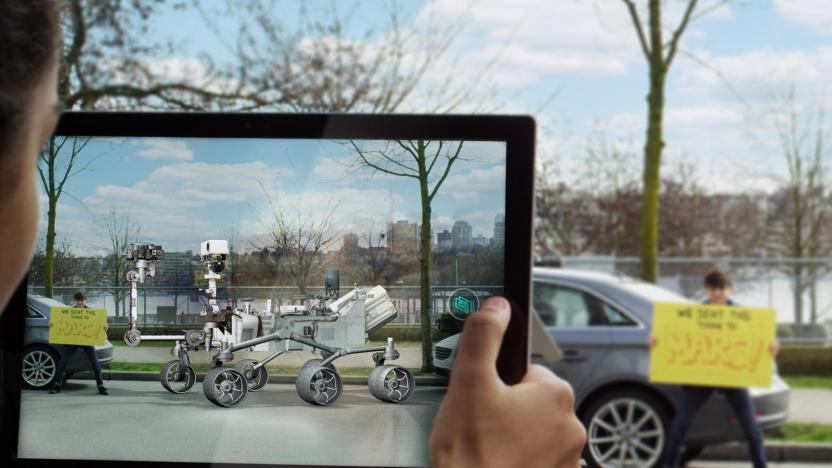
Microsoft helps you see mixed reality with only a webcam
You won't need HoloLens or some other special headset to experience mixed reality in the classroom. Microsoft is preparing View Mixed Reality, a built-in viewer for Windows 10 that will make it easy to see virtual 3D objects (created in 3D Paint) in the real world. All you need is a PC with a webcam -- preferably rear-facing, of course. If teachers want to show you the relative size of a Mars rover, they just have to load the viewer and give you a look. View Mixed Reality will be available sometime this fall, and it can also be used on Windows Mixed Reality hardware arriving in a similar timeframe. Check out all the news from the MicrosoftEDU event here.

GM challenges eight schools to build self-driving Chevy Bolts
Just about every major car company is trying to figure out the best way to build a self-driving car, and GM is tapping a handful of schools to help get the job done. Teams from Virginia Tech, the University of Waterloo, Kettering University, Michigan State University, Michigan Tech, the University of Toronto, Texas A&M and North Carolina A&T have been selected to apply their know-how to a very specific challenge. Long story short, they each have three years to load up a bog-standard Chevy Bolt EV with all the equipment it needs to self-drive on an urban testing course.
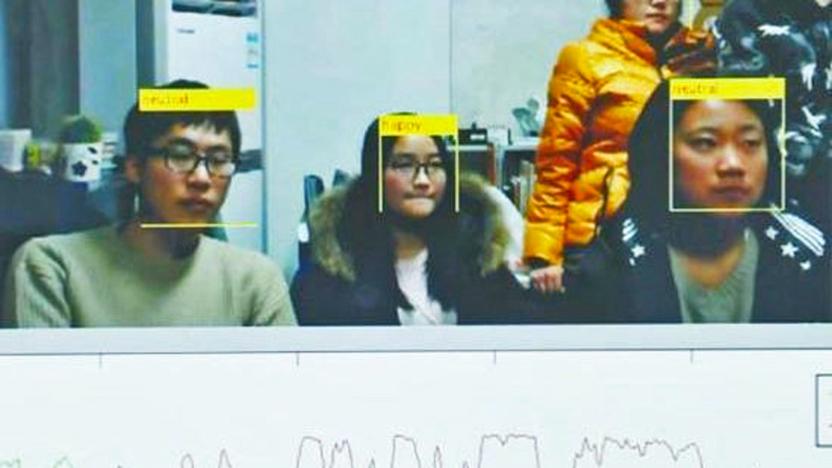
Professor uses facial recognition to spot bored students
If you've been to college or university, you'll know the feeling: when your professor drones on for hours on end, but you're hesitant to bring it up out of politeness (or fear of said professor's wrath). You won't have to be quite so shy in Wei Xiaoyong's science classes, though. The Sichuan University educator is using a custom-built facial recognition system to scan students' faces and determine whether or not they're bored. The approach gauges the emotion in your face over time, helping Wei refine his lectures so that he doesn't lose your interest.

Lockheed Martin hopes to turn your kids into astronauts
Lockheed Martin knows that its future spacecraft will only fly if there are enough people interested in flying them, so it's trying something a bit unusual: it's helping to raise the next wave of astronauts. It's launching a Generation Beyond program that gives both parents and teachers the resources they need to get middle school kids (grades 6 through 8) excited about space-related science, engineering and math. The internet curriculum shows would-be spacefarers everything from the challenges of living in space (or on Mars) to the careers they can pursue in space exploration.

Amazon helps teachers share free digital education tools
Part of the promise of digital education is the ability to share knowledge between schools, but that's not easy when there isn't a central hub for making that happen. Amazon, however, thinks it can help. It's launching Inspire, a free service that helps American educators find and share resources. If a teacher creates useful material for a grade 8 science course, it's just a matter of uploading it and giving it the right tags -- classrooms around the country can then find it when they need to bolster their curriculum.

France's free coding school is coming to Silicon Valley
For 3 years, Paris residents wanting to learn programming have had access to 42, a school that offers a radical approach to technical education: there are no teachers, no lesson plans... and no tuition fees. As long as you're between 18 and 30 and thrive in a 4-week coding challenge, you can spend 3 to 5 years mastering software development at no cost and on very flexible terms. Sound good? Well, you won't have to move to France to give it a shot. The 42 team has announced that it's opening a 200,000 square foot Silicon Valley-area campus (in Fremont, to be exact), with applications beginning immediately. The first class starts in November.

Texas Instruments has a gold-hued graphing calculator
Want to prove that you're a cosine champion at your next math exam? Texas Instruments thinks it has the answer. It's trotting out a limited edition version of the TI-84 Plus CE graphing calculator that comes in a gold-hued (as TI puts it, "Golden Ratio") metallic shell -- yes, you can show some swagger while you're visualizing functions. There's also a special "Bright White" model (below) if you're not quite so ostentatious. Both calculators should arrive this summer without a price premium (existing models sell for $108 on Amazon), so you won't have to pay extra to bring some flash to your calculus class.
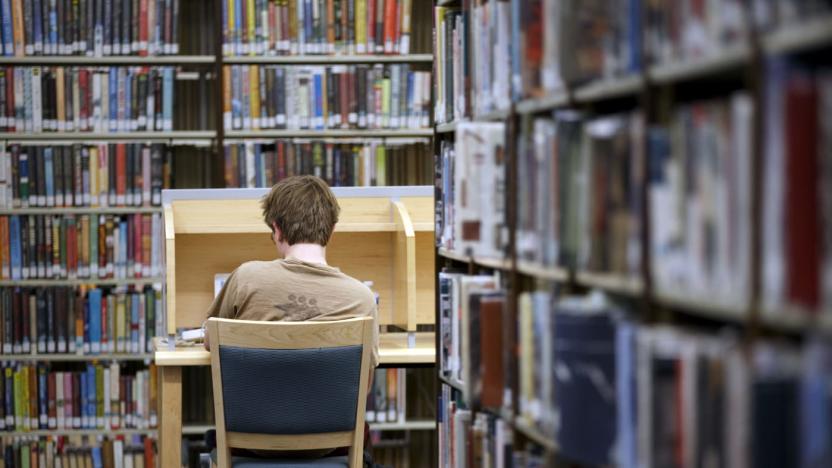
Ancient apps leave 3.2 million PCs open to ransomware attacks
Criminals are relying on some particularly insidious ways to spread ransomware. Cisco's Talos group has discovered that intruders are taking advantage of vulnerabilities in old versions of Follett library management software (specifically, the associated JBoss web servers) to install backdoors and slip in ransom code. The attack has 'only' put 2,100 backdoors in place, but about 3.2 million systems are known to be at risk -- many of them at grade schools. Suffice it to say that many educators don't want to pay a hefty sum just to regain access to their library data.
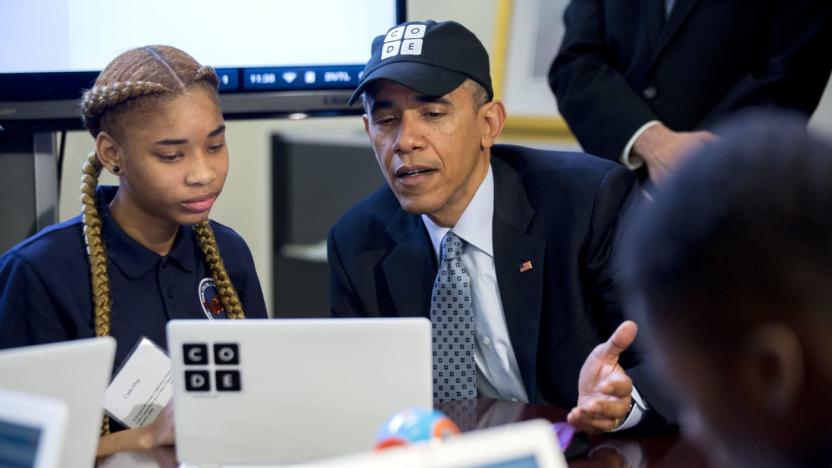
President pledges $4 billion toward computer science in schools
The White House isn't just relying on legislation to make computer science education a priority in the US. President Obama has launched a Computer Science for All initiative that gives states $4 billion in funding to expand computer science in K-12 schools through a mix of better course materials, partnerships and teacher training. The move also sends another $100 million directly to school districts, unlocks $135 million in funding from government organizations and gets further cooperation from both local governments as well as tech leaders.

Google's VR for students comes to more cities and countries
Google's virtual reality education efforts may have only just begun this fall, but they're about to grow in a big, big way. The search giant is expanding its Expeditions Pioneer Program to schools in 12 US cities (including Las Vegas, New Orleans and Portland) as well as three in Canada, Denmark and Singapore. Each school will get a kit with everything it needs to take students on VR field trips, including ASUS smartphones as well as either Google Cardboard or View-Master's device. The project is still far from ubiquitous, but it's big enough to make us a little jealous -- where were these kinds of virtual adventures when we were kids?



